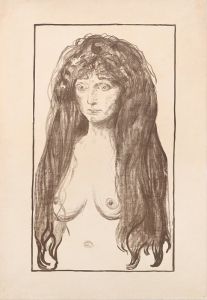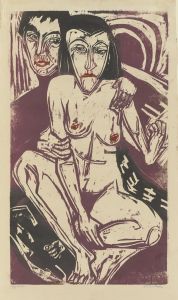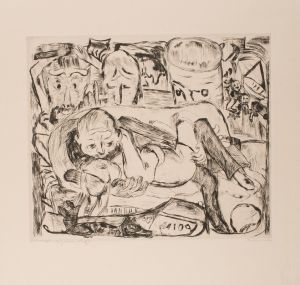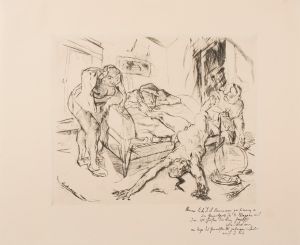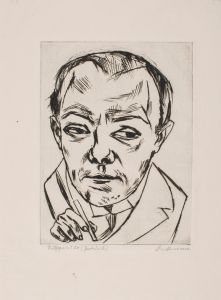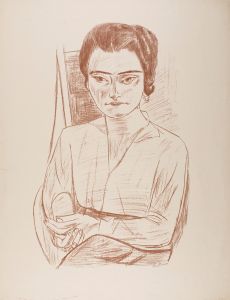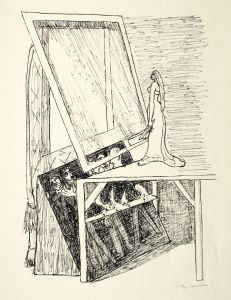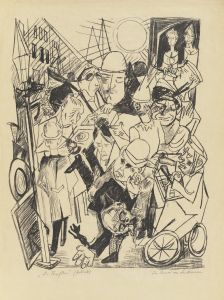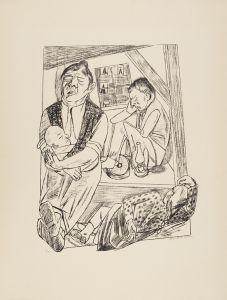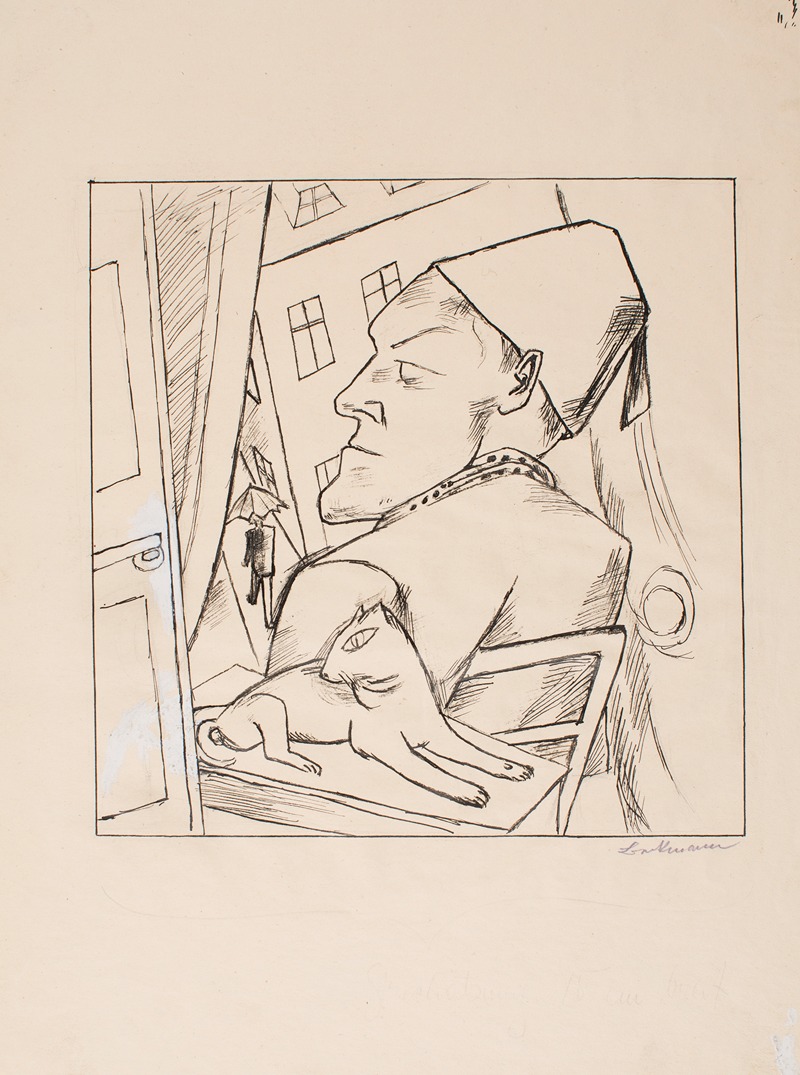
Bitterness
A hand-painted replica of Max Beckmann’s masterpiece Bitterness, meticulously crafted by professional artists to capture the true essence of the original. Each piece is created with museum-quality canvas and rare mineral pigments, carefully painted by experienced artists with delicate brushstrokes and rich, layered colors to perfectly recreate the texture of the original artwork. Unlike machine-printed reproductions, this hand-painted version brings the painting to life, infused with the artist’s emotions and skill in every stroke. Whether for personal collection or home decoration, it instantly elevates the artistic atmosphere of any space.
"Bitterness" is a painting by the German artist Max Beckmann, created in 1948. Beckmann, a prominent figure in the Expressionist movement, is known for his intense and often complex works that reflect the tumultuous times he lived through, including both World Wars and the interwar period in Germany. His art is characterized by bold colors, strong lines, and a deep exploration of human emotion and experience.
Max Beckmann was born in Leipzig, Germany, in 1884 and became one of the leading artists of the early 20th century. His work often delves into themes of existential angst, social upheaval, and the human condition, influenced by his personal experiences and the broader historical context. After serving as a medical orderly during World War I, Beckmann's style shifted from Impressionism to a more expressive and symbolic form, which became a hallmark of his later work.
"Bitterness" was painted during a period of exile for Beckmann. In 1937, the Nazi regime in Germany labeled his work as "degenerate art," leading to the removal of his paintings from German museums. Consequently, Beckmann left Germany and spent the following years in Amsterdam before eventually moving to the United States in 1947. It was during this time in America that Beckmann created "Bitterness."
The painting reflects Beckmann's continued exploration of the human psyche and the impact of war and displacement. While specific details about the painting's composition and subject matter are not widely documented, Beckmann's works from this period often feature complex, multi-figure compositions that convey a sense of tension and emotional depth. His use of vivid colors and dramatic contrasts serves to heighten the emotional intensity of his paintings.
Beckmann's time in the United States marked a significant phase in his career, as he gained recognition and continued to develop his distinctive style. Despite the challenges he faced, including adapting to a new cultural environment, Beckmann remained committed to his artistic vision. His work during this period often reflects a synthesis of his European experiences and his new American surroundings.
"Bitterness" is part of Beckmann's broader oeuvre, which includes paintings, drawings, and prints that explore themes of identity, power, and the human experience. His work is noted for its psychological depth and its ability to capture the complexities of modern life. Beckmann's influence extends beyond his lifetime, as he is regarded as one of the most important artists of the 20th century.
Today, Max Beckmann's paintings, including "Bitterness," are held in high esteem and can be found in major art museums and collections worldwide. His work continues to be studied and appreciated for its artistic innovation and its profound exploration of the human condition. Beckmann's legacy endures as a testament to his ability to convey the emotional and psychological realities of his time through his art.







